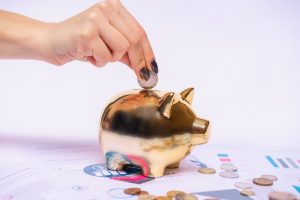10.1 The Functions of Money
Money for the sake of money is not an end in itself. You cannot eat dollar bills or wear your bank account. Ultimately, the usefulness of money rests in exchanging it for goods and services. People regularly use money when purchasing or selling goods and services, and thus, both buyers and sellers must widely accept money.

To understand the usefulness of money, we must consider what the world would be like without money. How would people exchange goods and services? Economies without money typically use the barter system. Barter—literally trading one good or service for another—is highly inefficient for conducting transactions. In a barter economy, an exchange between two people requires a double coincidence of wants, meaning that what one person wants to buy is exactly what the other wants to sell. This is harder than it sounds.
Suppose an accountant wants a new pair of shoes. The accountant doesn’t just need to find someone with a pair of shoes in the correct size to sell, but they have to find someone willing to exchange the shoes for what the accountant has to offer, namely accounting services. Trades like these are likely to be difficult to arrange.
Another problem with the barter system is that it does not allow us to easily enter into future contracts to purchase many goods and services. For example, if the goods are perishable, it may be difficult to exchange them today for other goods in the future. Imagine a farmer wanting to buy a tractor in six months using a fresh crop of strawberries harvested today. Because the strawberries won’t last, such a transaction is unlikely to occur.
Money solves the double coincidence of wants problem. First, since money is generally accepted as a means of payment (or medium of exchange), the accountant can pay for new shoes with money, which the shoe seller is willing to accept (even if they don’t need accounting services) since they can use the money to purchase something they do need.

Second, people are willing to sell something for money, even if they have no immediate need to purchase something else because money serves as a store of value. A store of value is anything that holds value. Some things are better stores of value than other things. Real estate has traditionally been a good store of value since it tends to increase in value over time. Money doesn’t have to be a perfect store of value to be acceptable. In an economy with inflation, money loses some buying power each year, but it remains money.
Third, money serves as a unit of account, meaning it is the ruler by which other economic values are measured. If there were no unit of account, the price of every good or service would have to be expressed in terms of the price of every other good and service. “I paid $75 for this radio,” or “I paid $15 for this pizza.” People do not say, “I paid five pizzas for this radio.” When we report the value of a good or service in units of money, we report what another person will likely have to pay to obtain that good or service.
Attribution
“255 Reading: Defining Money by Its Functions” from Macroeconomics by Peter Turner is licensed under a Creative Commons Attribution 4.0 International License

